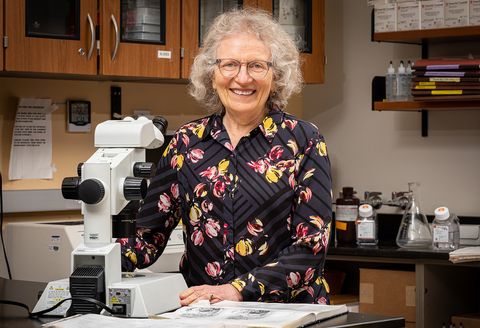
MANHASSET, N.Y.– Millions worldwide and an estimated 200,000 people in the United States have lupus, of whom 90 percent are women. In an effort to translate basic molecular research into better therapy for patients seeking care, The Feinstein Institutes for Medical Research has been awarded a $3 million Global Team Science Award from the Lupus Research Alliance. Betty Diamond, MD, director of the Institute of Molecular Medicine at the Feinstein Institutes and the Maureen and Ralph Nappi Professor of Autoimmune Diseases, will lead the research efforts as the corresponding investigator with a multi-disciplinary global team.
Lupus, an autoimmune disease that affects the joints, skin and organs, often causes people to experience fatigue, brain fog, joint pain, rash and fever. There are no cures for the disease; instead, treatments are mostly focused on helping to minimize flare-ups and improve quality of life. Through the support of the award, the project led by Dr. Diamond will aim to characterize the body’s immune and brain response in small numbers of diverse people with Systemic lupus erythematosus (SLE) who are in drug-free remission. Obtaining this information will help paint a better picture of the cells/pathways involved in SLE remission to inform physicians of the pathways to better health.
“Some lupus patients can experience reduced flare-ups and go into remission. It is critical to understand what is going on at a molecular level in patients who fall into this category, including patients who still exhibit neuroinflammation. We wonder if those with continuing neuroinflammation are those who will relapse,” said Dr. Diamond. “Through the generous support of the Lupus Research Alliance, we hope to develop new tools in assessing remission, identifying new signs of lupus flare-ups and novel potential drug targets.”
Using brain scans and cell analysis, researchers will help answer questions about which cells are active or inactive during remission, how the brain changes during this time, and other immune response biomarkers that can track the progression of the disease.
“As a leader in lupus research, Dr. Diamond brings an important new perspective to unlocking the mysteries of this condition,” said Kevin J. Tracey, MD, president and CEO of the Feinstein Institutes and Karches Family Distinguished Chair in Medical Research. “Supported by the Lupus Research Alliance, this new project will shed new light on how the brain is interacting with the immune system in these patients.”


